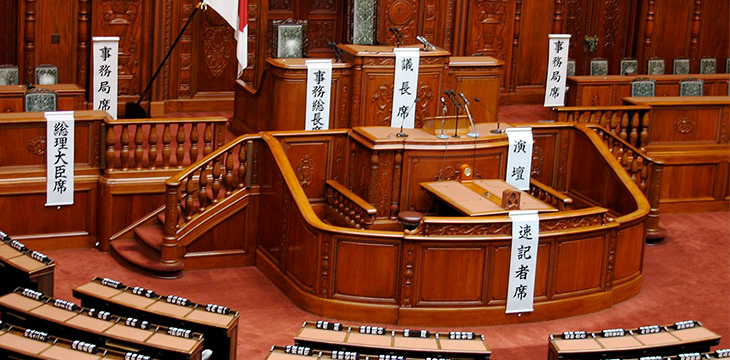|
Getting your Trinity Audio player ready...
|
New regulations aimed at the cryptocurrency sector have moved a step closer to the statute books in Japan, after the House of Representatives passed the measures to the upper house.
At a plenary session this week, the measures were passed in the lower house of Japan’s National Diet. The proposals will now be considered by the House of Councillors before being signed into law, Nikkei reported.
The regulations are expressed as amendments to two major financial statutes, the Payment Services Act and the Financial Instruments and Exchange Act, and have been designed to strengthen the legal framework around cryptocurrency transactions.
Specifically, the amendments will introduce new requirements for trading crypto on margin, as well as measures redefining crypto-related terminology, introducing a definition of “crypto assets” to national law for the first time.
The regulations for margin trading were first introduced in March, and would have the effect of imposing a maximum leverage ratio of 4x—broadly in line with similar regulations controlling foreign exchange margin trading.
The Cabinet of Japan approved the measures at the time, with the latest approval from the House of Representatives marking the next key stage towards taking legal effect.
This was followed in April by comments from Japan’s minister of finance and deputy prime minister, Taro Aso, who said it was important to shift terminology from discussing ‘virtual currencies’ to the new classification of “crypto assets.”
The measures are being broadly welcomed in Japan as additional clarity on the parameters of regulation. It comes at a time when other jurisdictions around the world are battling with their own approach to regulating the crypto sector, with Japan regarded as an international trailblazer in its legislative efforts to control the market.
Elsewhere, Russia announced another delay to its pending cryptocurrency legislation after the Financial Action Task Force on Money Laundering intervened to demand definitions of “cryptocurrencies,” rather than “digital assets,” as is currently proposed.
Similarly, regulators in the United States have been accused of stifling innovation through a lack of clarity for the crypto sector, particularly on the boundary of securities and other types of digital assets, with calls for legislation to clearly state which regulators and regulations apply to different activities.
The proposals will now be considered further by the House of Councillors, to be signed into law later this year.

 02-24-2026
02-24-2026 




